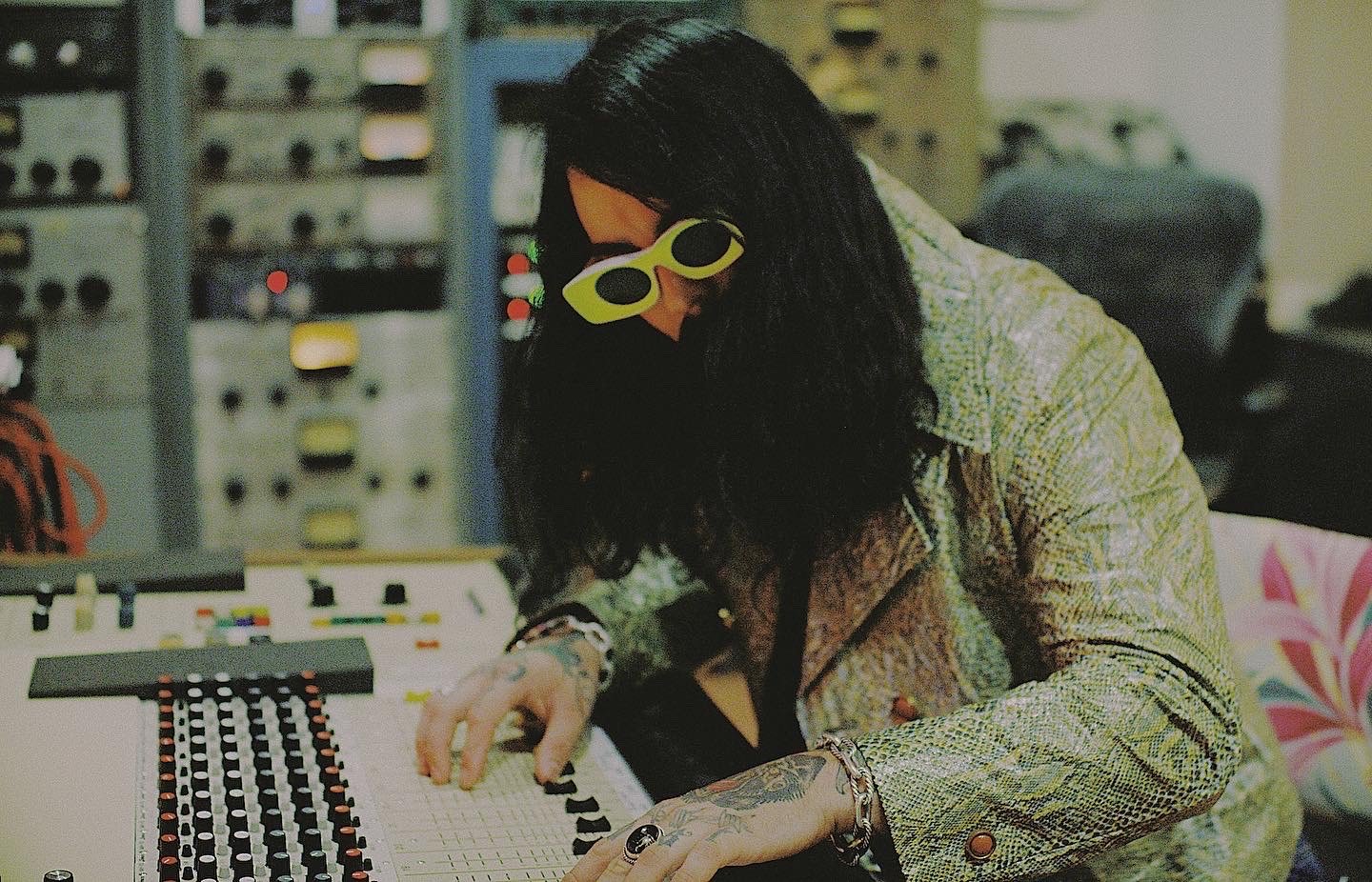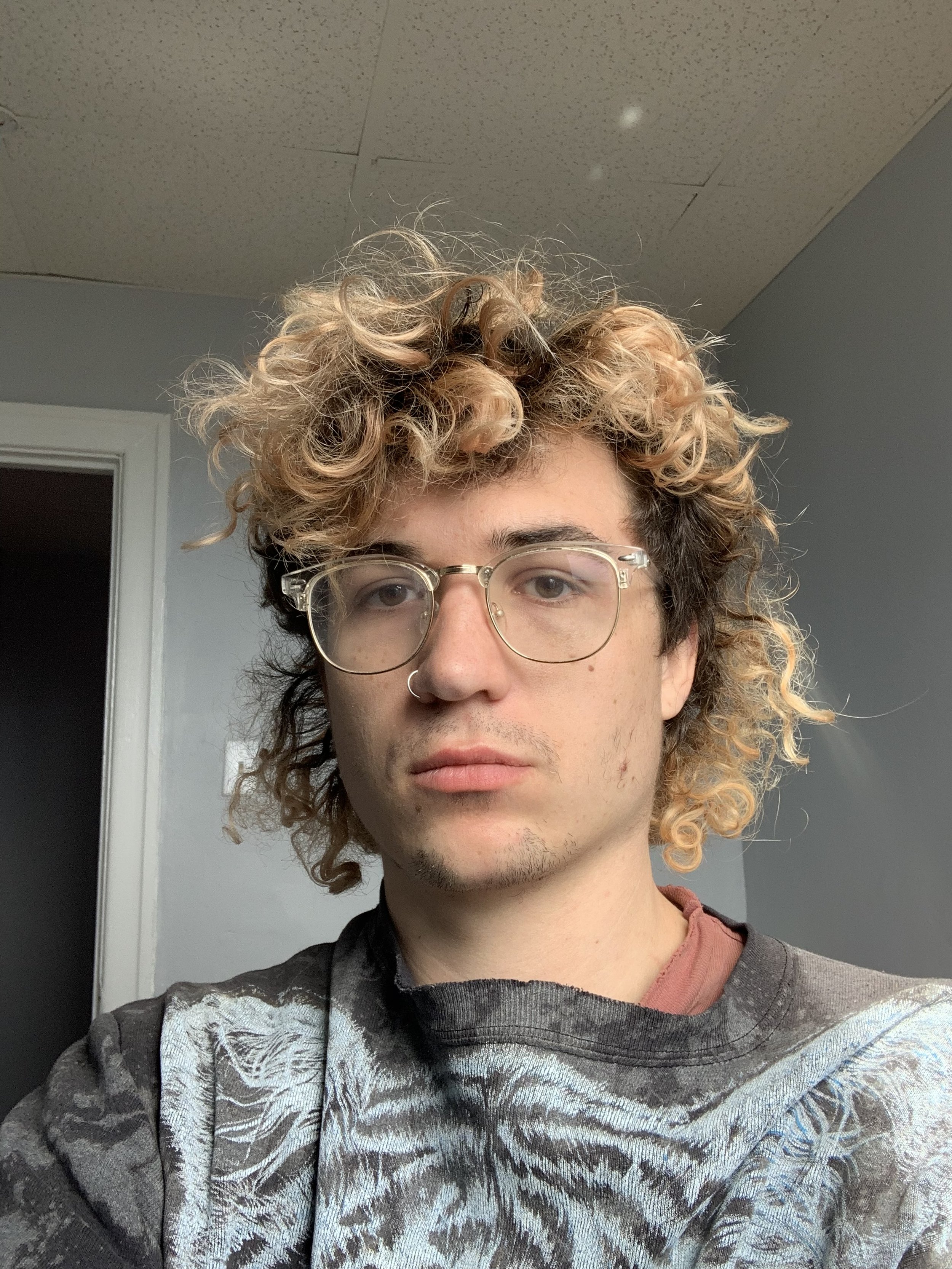Prepping for Success with Producers
As a great Beatle once said, “I get by with a little help from my friends”. Any musician worth their salt knows that producers and engineers are some of the best and most beneficial friends you can make in the music industry. Would Michael Jackson’s solo career taken off like a rocket into the night if it wasn’t for Quincy Jones? Can you think of Snoop Dogg without thinking of Dr Dre? Would music at large be what it is today without the mad genius of Rick Rubin? It’s safe to say these professionals can play a vital role in the advancement of any musician's journey. They help to develop their sound and bring out the best in an artist to capture the essence of their story.
However, unlike their charismatic rockstar counterparts they often fly under the radar misunderstood and not always receiving the praise they deserve. We rounded up some of the most colorful characters in the production/engineering game and asked them what makes them tick and also for a bit of recording advice for our musically inclined readers.
(Davis Shubs; Photo Credit Mike Gallagher)
Davis Shubs
Philadelphia, Pennsylvania
Has worked with…
Scantron, Eyebawl, Hoochi Coochi, Reverend Mother, Castle Rat, Jeremy and The Harlequins, Manaaki, Grave Bathers, Slomo Sapiens, The Bad Larry’s
Studio
Right now I’ve just been working freelance and going from place to place depending on the band’s needs. I do actually have plans to build my own place but for now this seems to be the best option for me and my clients. I bring 4 trunks and a couple racks of my personal recording equipment and mic locker, along with that I own several drum sets and amps. It’s a whole production when I occupy a studio to record.
How did you get into producing?
When I was in college I had a small jam room in my parents basement that I used to track this project called The Ivory Moans, it was kind of a Surf/Spy meets Funk and Soul soundtrack music. The process of having the control to craft the sounds to my liking was very exciting and addictive. It also kept me out of trouble which I had been so prone to in those years.
I think I also just got sick of working with other producers who were kinda commercial and vanilla. I wanted to make stuff that was more live and risky, I wanted to learn more classic analog production methods.
#1 Tip to get the best bang for your buck when booking a session
Everybody is different but I always make sure to work with bands and musicians who I believe in. I make sure I’m working with folks who are very competent and talented and we cut the basic tracks live. That way you have minimal overdubs. The better the band, the faster it goes and time is money. When a band tracks the main chunk of their music live that leaves time for auxiliary percussion and fun experimental stuff. It’s also a very natural sound.
What's your most valuable tool as a producer/engineer?
I think in terms of producing it’s the ability to listen and make suggestions only when and where they count. And also the amount of music I’ve listened to because I love music. On the engineering side I think my mic locker is and gear racks are second to none, very classic, my experience with these mics has reached as far as Memphis in the holy ground of recording. At this point I’m just a conduit embracing a tradition of recording and music that is a beautiful melting pot of spirits.
Yung Rocko
Dover, Delaware
Has worked with…
NBA Young Boy, Pnb Rock, Toosii
Studio
Working out of my home built studio with top of the line equipment. U87ai microphone, neve 1073 preamp, tube tech cl1b compressor.
How did you get into producing?
I got into producing when I was around 11 years old, I'm 30 now lol. My cousin Brown Suga, a.k.a. Danielle Johnson, and I were in a Hip-Hop group with a family friend Nino NoSay called Flow City. I learned a lot through trial and error while recording them. We got signed to independent label Living Proof records. They had us in Miami Florida once, and we were at the Hit Factory where I was picking many different engineers and producers' brains.
#1 tip to get the best bang for your buck when booking a session
COME PREPARED. I know it sounds cliche but it's the truth. If you come with an idea of what you already know you want to do that will cut your time down in half. Leaving you more time to experiment and create.
What's your most valuable tool as a producer/engineer?
I believe my valuable tool is adaptability. The music scene is always changing. The sound, the clothing, the whole culture. Being able to see the change and beat everyone there is very important because you don't wanna blend in with everyone, and you dont want to be so different that people don't get you.
(Nike Holmes; Photo Credit Mike Scioli)
Nick Holmes
Wilmington, Delaware
Has worked with…
Haha Charade, Marielle Kraft, Cruniverse, Oh Hi Ali, Ibri, $lyce
Studio
Occupy Studio. (Owner)
How did you get into producing/engineering?
I started experimenting with production in 2009. I had some close friends recording in their basements, and naturally, I was curious to understand how to get a record to sound industry-ready. In 2012 I went to school in Orlando for recording and music production. Once I had a little more knowledge, I started operating a studio out of my house, and eventually moved back to Newark with the ambition of opening a storefront recording studio. We opened Occupy Studio in 2018, and these days I’m a full-time engineer/producer.
#1 tip to get the best bang for your buck when booking a session?
In my case I'd say be prepared. Whether it's having your files ready and organized, or coming to a session with some concepts, being prepared always gets the session started on the right foot.
What's your most valuable tool as a producer/engineer?
Communication. Understanding an artist’s vision is most important. As well as keeping an open line of communication about deadlines and future plans is always helpful when building a relationship with an artist.
Joni Elfers
Chester County, Pennsylvania
Has worked with….
Shane Palko, Merger, Holy Gifts, A paramount a love supreme, Amirght
Studio
I currently work out of Currylands Studio. It is a digital and analog studio by Shane Palko and I, built in an old barn in Chester County, Pennsylvania. We have been up and running since about February of 2022. Currylands is small and charming with lots of stone, and also ancient. The main stone wall in the studio dates to the 1700s. A large portion of the studio is made from recycled wood from buildings and structures in the area, some of which come from Philadelphia and date back 200 years.
Currylands contains a beautiful tracking room which is cozy enough for most 3 or 4 piece bands. It also has a 28 channel neotek elan console, with a selection of beautiful mics, some going back to the 50s. We have available a small 8 track ½ in tape machine for analog projects.
How did you get into producing?
I first got into record engineering by collecting records and hifi gear in Newark, DE in high school, along with being a musician and growing up in a creative family. I would go to Rainbow Records and Wonderland to buy records. I would sit in my room, close my eyes and listen. This led me to want to be a recording engineer. I bought an 8 track tape machine and an audio console and started recording anyone who was willing to work with me. Some of these experiments went really well, and allowed me to travel, doing mobile recordings for artists on the east coast. Buying whatever gear I could afford and selling whatever gear I didn't like. I would also read a lot of articles and interviews with other people to hear how their brain would think about things. From there it was all trial and error and experimenting.
#1 tip to get the best bang for your buck when booking a session
Be prepared. Be practiced. If you are a band, know your songs. If you’re a song writer, know your songs. If you want production (like added parts or hired musicians) connect with the engineer or the studio beforehand and see who they recommend, and if that is in their skill set. Is your engineer equipped to handle the production expectations you have?
Often having 20 minutes of conversations about expectations can save hours and days in the studio. There is no harm in shopping around and finding an engineer that fits your needs. Also asking how they handle post production is helpful. What are the expectations and thoughts behind how you want things mixed and mastered? Often having all of these conversations before recording and asking the engineer what they can do beforehand saves so much time in the long run.
What's your most valuable tool as a producer/engineer?
I would say the amount of artists I've worked with and the diversity of projects. Next thing is having a studio and gear I know intimately. My workflow these days has been super quick with most bands getting the tones they want in the first few hours. Two of the first bands I recorded at the studio got 10 songs with most of the overdubs done in 2 days.




